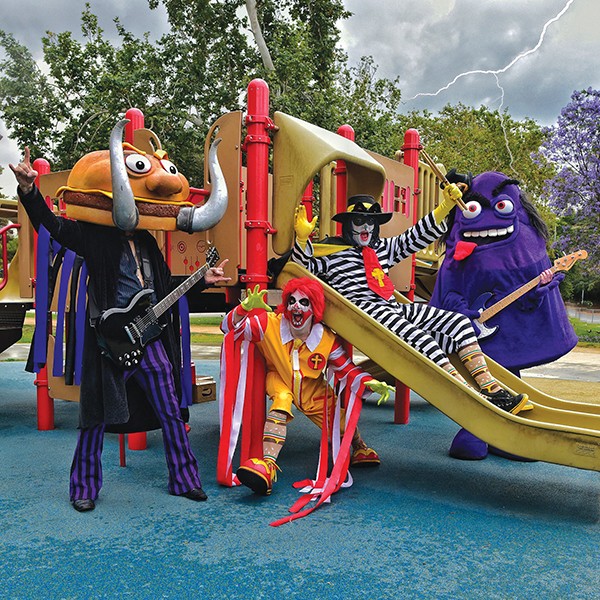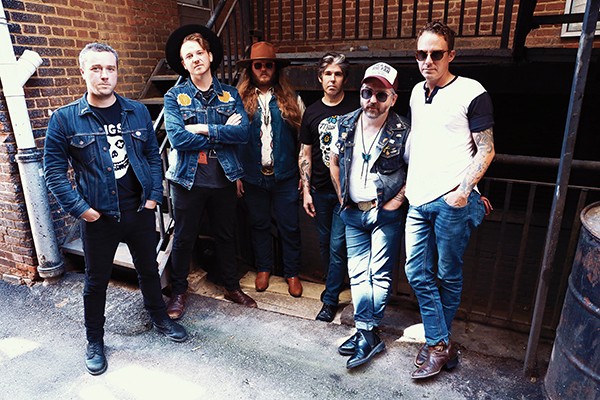It’s fine to call Ruthie Foster a blues artist. She has seven Blues Music Awards sitting on the shelf at home, and she’s been nominated for the Best Blues Album Grammy three times. But she’s not really a blues artist. She’s a blues-folk-pop-rock-gospel and even a little country artist. “That’s entirely fair to see me that way,” she tells me in a recent phone interview. “Those are all genres I grew up listening to. Like everybody’s record collection, I have a little bit of everything. I enjoy all those genres of music. That’s why you hear so many different genres, even in my live shows.”
Foster’s mix of styles and powerhouse church-rooted singing, reminiscent of Aretha Franklin and Mavis Staples, has been with her since she was a little girl in the tiny town of Gause, Texas. “It comes from growing up in rural Texas, being exposed to a lot of gospel music. That seems to be the root of what my music comes back to,” she says. “Blues, my dad would listen to blues, and he’d make me tapes of Lightnin’ Hopkins, Muddy Waters, and old soul — Sam Cooke and all of those.”
 Ricardo Piccirillo
Ricardo Piccirillo
Ruthie Foster
A shy kid, Foster wanted to play guitar and piano more than stand in front of people and sing. But by 14, she was a soloist in her uncle’s choir and seemed to be headed toward a career in music. Then, after going to school in Waco, where she added reggae to her musical mix, she made an independent, distinctly non-musical turn that got her out of Texas. “I’d just graduated college,” she says. “I went into the Navy and spent a year away from music. I went into a helicopter squadron. That’s where I picked up a lot of rock. That’s what the guys there listened to.”
The next adventure came after Foster got out of the Navy, landed in New York, and began playing in folk clubs. Atlantic Records got wind of the talented singer and offered her a record deal. But the label wanted to groom her to be a ’90s pop star. As Foster explains, Atlantic “wanted an Anita Baker. I used the time to get to know a lot of songwriters. I used the time well, learning to sit in front of people, maybe just two people, and entertain them with just my voice and guitar.”
After three years, Foster left behind New York and Atlantic to return home. “My mother wasn’t doing good, and I was homesick for Texas and needed a little simpler life,” she says. “Music was getting to a point where it had burned me out. So I came back, joined my church. I’d studied broadcasting in the Navy, so I got a job at the local TV station. Then I stumbled into another popular band. We were playing every weekend.”
When Foster’s mother passed two years later, she decided to pursue music full time, releasing her first album, Crossover, in 1999. Another self-released disc followed in 2001. Then Foster teamed up with Houston independent label Blue Corn Music, on which she has released six albums — three of them Grammy-nominated.
Joy Comes Back, her most recent record, is an aberration for Foster, with only one original. The rest include “What Are You Listening To?” by Chris Stapleton; her take on the Four Tops’ “Loving You Is Sweeter Than Ever”; and a single blues track: Mississippi John Hurt’s “Richland Woman Blues.”
Still, more surprising covers are infused with the blues. As Foster says, “I was playing my resonator [guitar], and that’s what led to my twisted version of [Black Sabbath’s] ‘War Pigs,’ slowed down and done like Son House. Sabbath fans might call it sacrilege. But I know Ozzy’s a blues fan.”
Naturally, her acclaimed live sets continue to favor her many original compositions, in all their trademark diversity. “That’s the joy of having so many genres and putting out records that are all over the place,” she says. “I’ll only pick a couple from Joy Comes Back. I see that as more of a singer/songwriter record, and I want my live show to be more exciting.”
Ruthie Foster appears at Acoustic Sunday Live! The Concert to Protect Our Aquifer, with Maria Muldaur, Dom Flemons, Guy Davis, and Doug MacLeod. Sunday, December 8th, First Congregational Church, 7 p.m. Proceeds go to Protect Our Aquifer.
 Paul Koudounaris
Paul Koudounaris  Cowtownchad
Cowtownchad  courtesy Missing Piece
courtesy Missing Piece